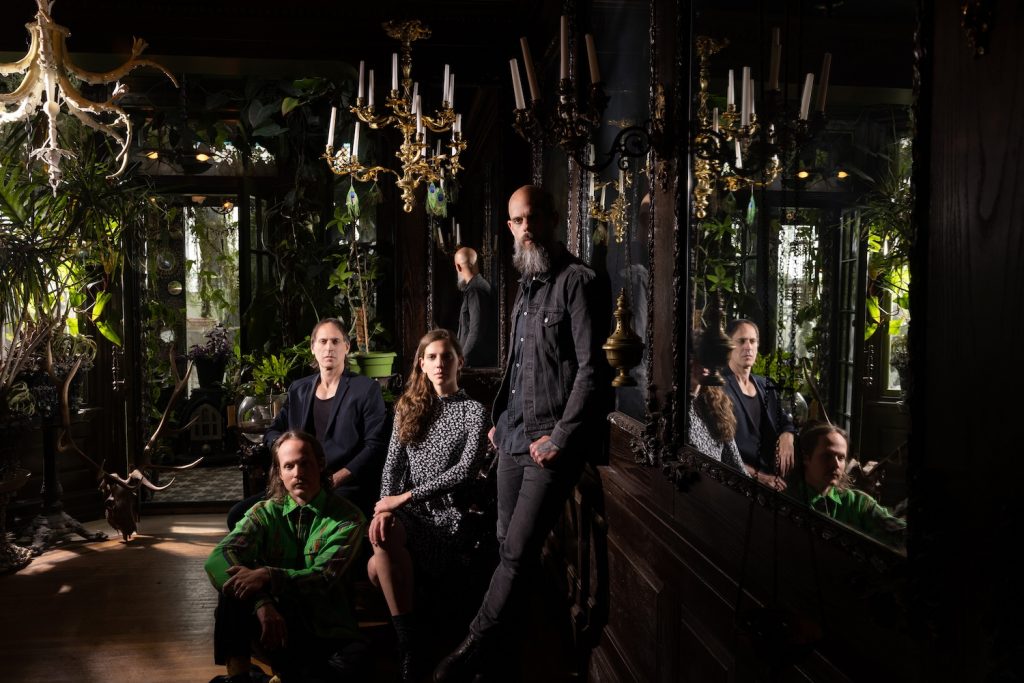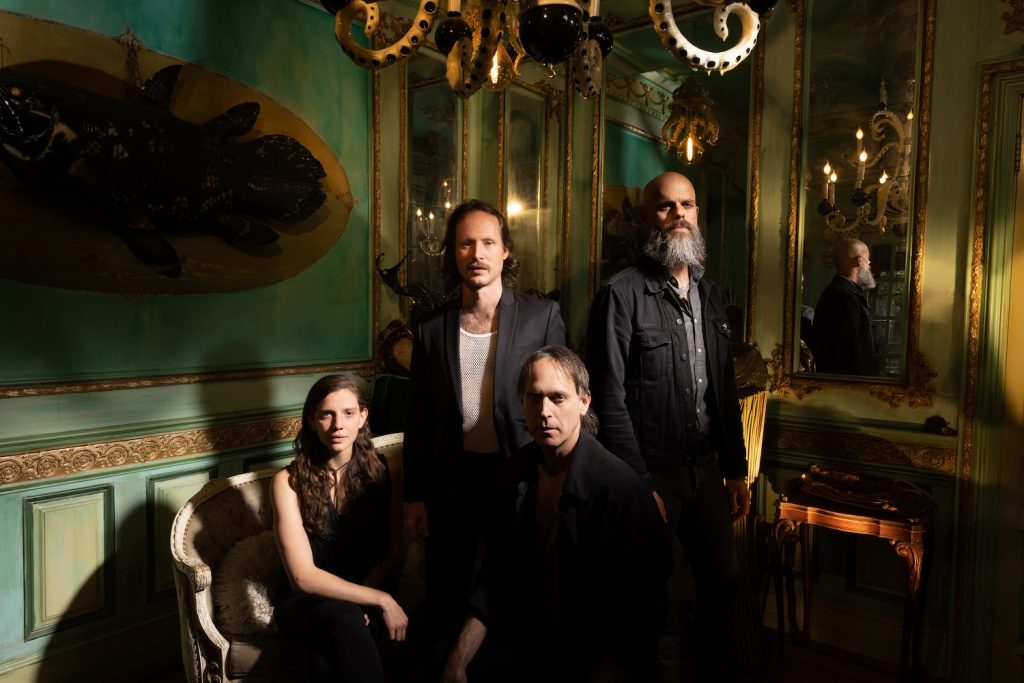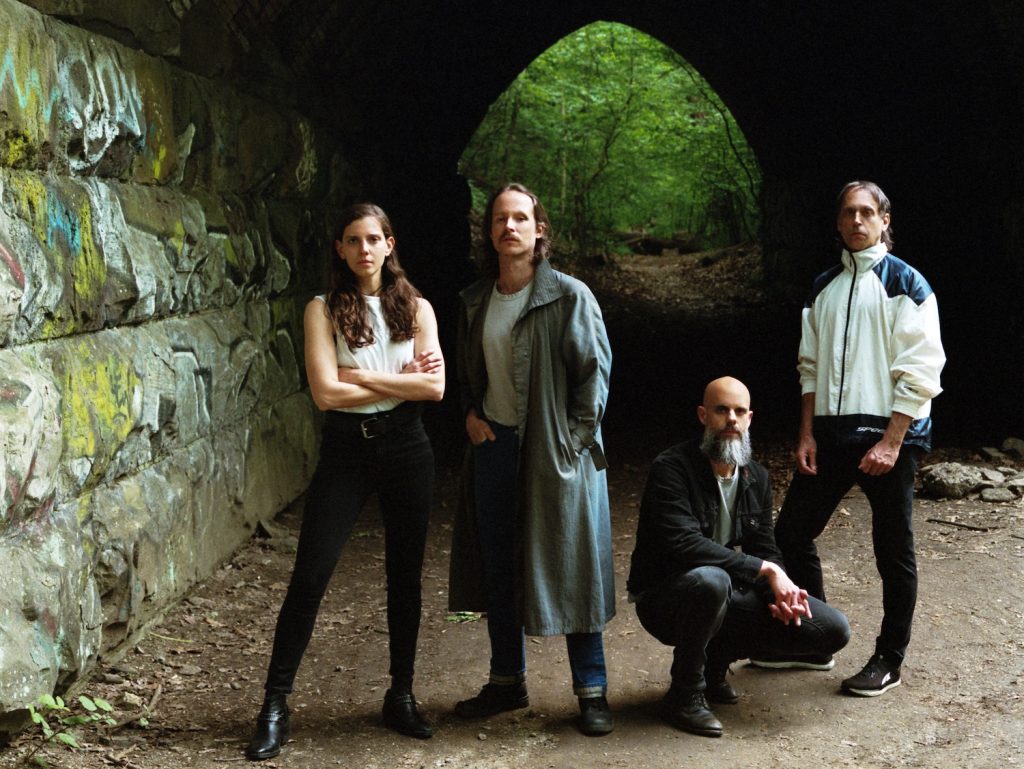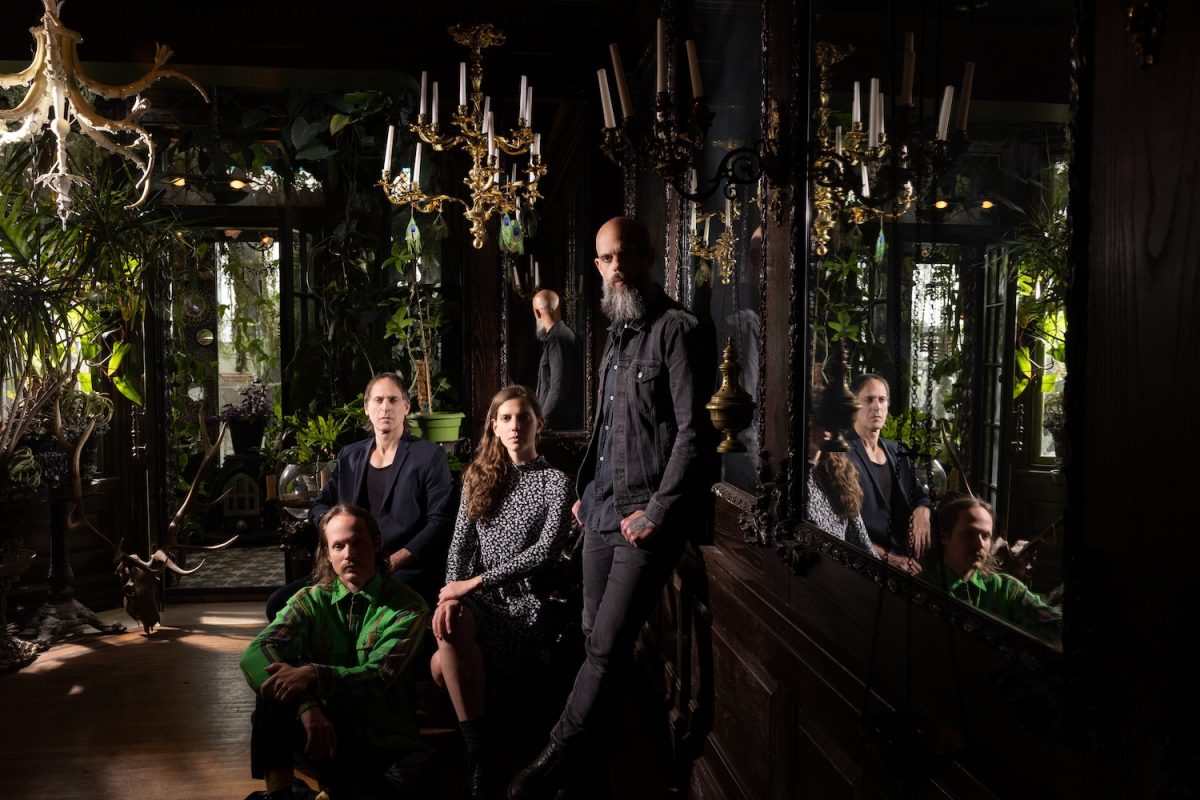
In September, Baroness released sixth album Stone (Abraxan Hymns), its much anticipated follow-up to 2019’s Gold And Grey. It’s Baroness’ second record—and sixth year—with a lineup that, according to frontman John Baizley, is built on teamwork.
“I’ve found myself with a great chemical mixture in the band,” says Baizley, the only original member of the group, which started in 2003. “None of us are there to take the spotlight. Onstage and on record, we’re there to provide a bed for each other. Our whole thing is to allow these critical moments for each other. As a singer, my job is to guide the story of the song and provide moments and pauses for the drums to shine and a place where the bass line can live. When Gina (Gleason) plays guitar, I need to pack the fuck away so that she can shine.”
Stone, engineered and produced by Baizley and band (Gleason, bassist Nick Jost and drummer Sebastian Thomson) at a remote Airbnb in New York state, is rooted in improvisation and trust.
“I can’t stress enough how Stone is the first fully intuitive record that we’ve ever written,” says Baizley. “It’s a record built on chemistry. It’s a record built on our bond as people, the love we have for one other and musical respect and trust that we afford each other.”
It’s almost as if the disconnectedness of the pandemic fueled a new, hyper-connected approach for Baroness when the band started the sessions that became Stone. While recording the album, the quartet prioritized takes with feeling over precision, with guitar harmonies and vocal harmonies often tracked live in the same room.

“Perfection is not accuracy—that’s what robots do,” says Baizley. “What musicians do is feel, and feel has nothing to do with perfection. If your foot is tapping, even if there’s a funky note, if you’re moving (to the song) the whole time, it’s perfect.”
Perhaps counterintuitively, this approach takes practice, especially in metal. The musical ebb and flow of a Led Zeppelin or Black Sabbath album doesn’t seem to make its way into the genre that much anymore. These days, a lot of people think that metal needs guitar solos that will melt your face off, and for a band to put anything else on a record is sacrilege. Baroness, however, seeks to make music with more variation.
Perhaps tipping its hat at masterpieces like Sabbath Bloody Sabbath, Baroness reached deep into its toolbox to put sounds on Stone that challenge the definition of a heavy-metal record in 2023. Like Ozzy’s affinity for the Beatles or Robert Plant’s flirtations with Americana, Baizley understands that paying attention to other genres of music is essential to this kind of depth on a Baroness record.
“If people say, ‘Oh, I just listen to music from the ’90s,’ I think that’s super fucking narrow minded,” says Baizley. “For lifelong musicians, it is absolutely 100% our job to understand what’s going on. We have to think like that in order for our music to get better … I love folk music. But we’re steeped in punk rock, hardcore and metal, so sometimes the songs have a bit of an edge to them.”
Of course, Stone is filled to the brim with heavy, chuggy, galloping riffs that will make anyone want to pick up a guitar and rock out. But it’s also full of huge, anthemic hooks that seem purposely built for a live audience. For Baroness, however, these hooks are rooted in pop music.

“I never want to get to a point where I think a genre or brand is so vapid and anemic and fucking corporate that I’m not going to find anything there,” he says. “That’s where I try harder. That’s why I love pop music. It’s this weirdly simple form of music that is tremendously complicated to understand. When a good pop musician puts out a great record, those are important musical moments.”
Like a sponge, Baizley and Co. soak up these seemingly opposing genres to craft a sound that is undeniably Baroness. “My interests are never going to be clean music played with precision and accuracy,” he says. “What I want is something that just blows your fucking mind.”
Baizley understands that without an engaged fans, groups like Baroness wouldn’t exist. He and his bandmates seek to understand the people who come out to see them live. “I think all musicians are indebted to their audience,” he says. “The audience quite literally brings us into the city, so as musicians, we want to play the best set every night. A fundamental cornerstone for Baroness is that we understand the level of participation that the crowd has. Basically, what we try to do, musically, is harness that sort of unchecked energy in the room every night and see where it goes.”
At a Baroness concert, Baizley wants to hear the audience sing back to him. “That’s the most rewarding experience that I get as a musician,” he says. “The first time I saw Radiohead, the first time I saw Nirvana, the first time I saw Sonic Youth and Metallica—those were all huge, huge moments that had a massive impact on me. I want nothing more than for this band to have that impact on people.”
Keep an eye out for your chance to experience Baroness live next spring.
—Jacob Paul Nielsen






